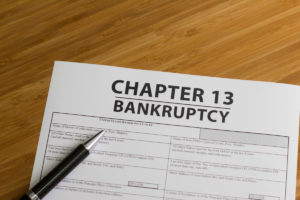Are There Conditions You Must Meet to Qualify?
 If you’ve thought about personal bankruptcy filing as a way to get a fresh start, you may know that you must meet certain qualifications in order to file for permanent debt discharge under Chapter 7. A “means test” is used to determine whether you meet the requirements. There’s a general perception that, if you aren’t eligible for Chapter 7, you can always file for reorganization under Chapter 13. Is that correct? Are there limits or conditions that must be met to proceed with a Chapter 13 petition?
If you’ve thought about personal bankruptcy filing as a way to get a fresh start, you may know that you must meet certain qualifications in order to file for permanent debt discharge under Chapter 7. A “means test” is used to determine whether you meet the requirements. There’s a general perception that, if you aren’t eligible for Chapter 7, you can always file for reorganization under Chapter 13. Is that correct? Are there limits or conditions that must be met to proceed with a Chapter 13 petition?
Chapter 13 Is Generally Available Only to Consumers
In most instances, a business may not file for protection under Chapter 13. However, if you operate your business as a sole proprietorship, you can use Chapter 13 to reorganize personal and business obligations. A Chapter 13 filing is often a good choice if you believe the business has potential but just needs a reboot, as it allows you to keep business assets and operations open while you set up repayment plans.
There Is a Limit to the Debt You Can Reorganize Under Chapter 13
Under the bankruptcy laws, you may not reorganize more than $419,275 in unsecured debt and $1,257,850 in secured debt. If you exceed these amounts, you must file an individual Chapter 11 petition.
All Income Tax Filings Must Be Current
As a part of the Chapter 13 process, you must submit copies of state and federal income tax returns for the past four years. Your Chapter 13 will not move forward until you do, and it can be dismissed if you cannot provide appropriate documentation.
Contact an Experienced Rockwall, Texas, Bankruptcy Attorney
At the Law Offices of Carrie Weir, all potential clients are entitled to a free initial consultation. I am currently communicating with clients by phone, text message, and videoconference. To arrange an appointment, contact my office online or call 972-772-3083. I handle Texas personal bankruptcy filings in Rockwall County, Collin County, Dallas County, Hunt County, and the surrounding counties.








Speak Your Mind